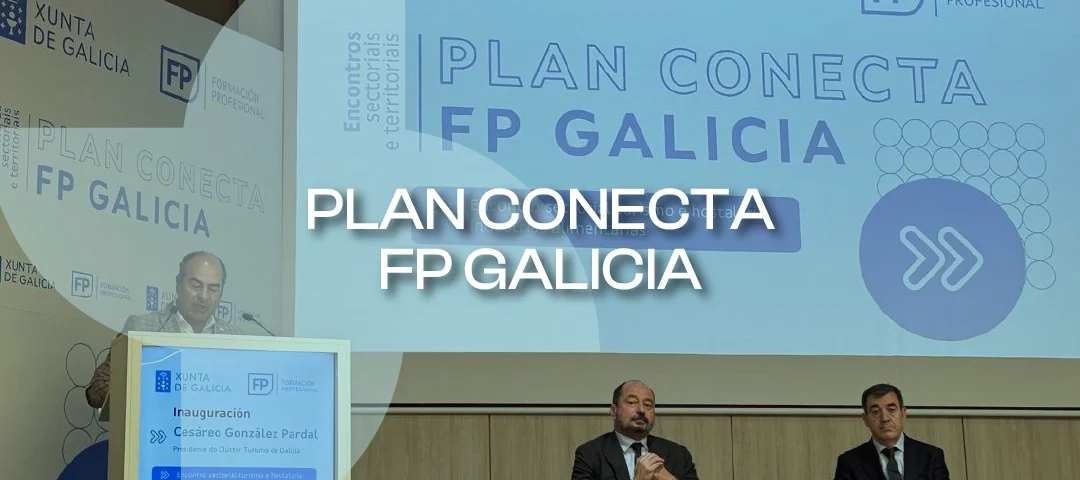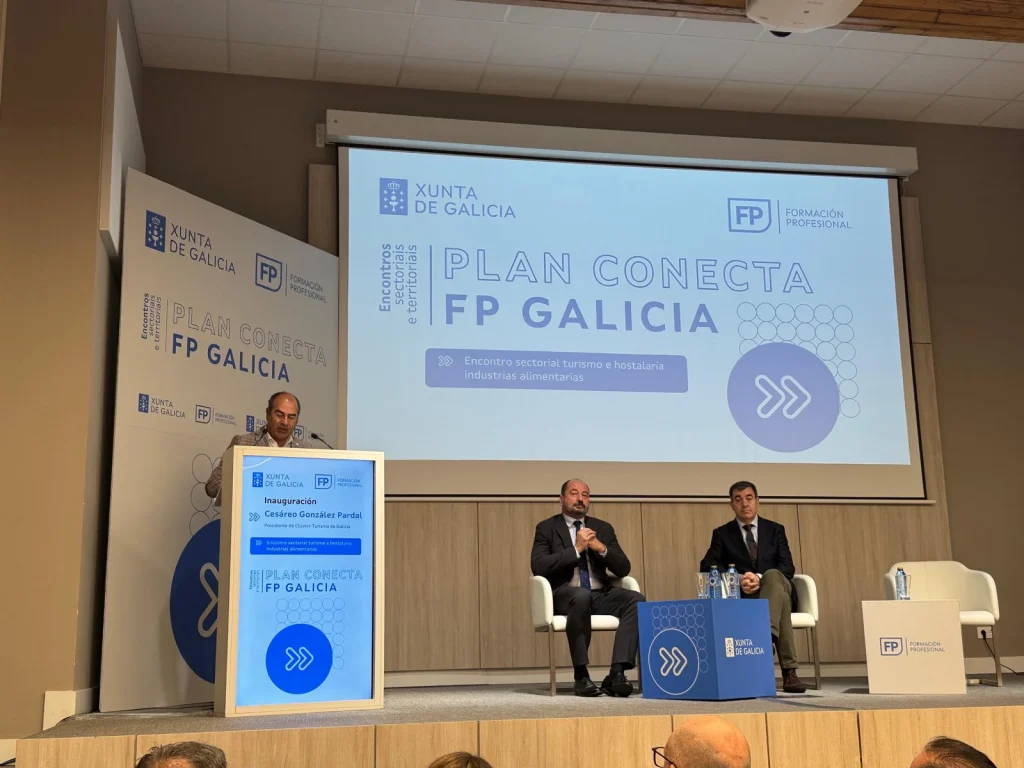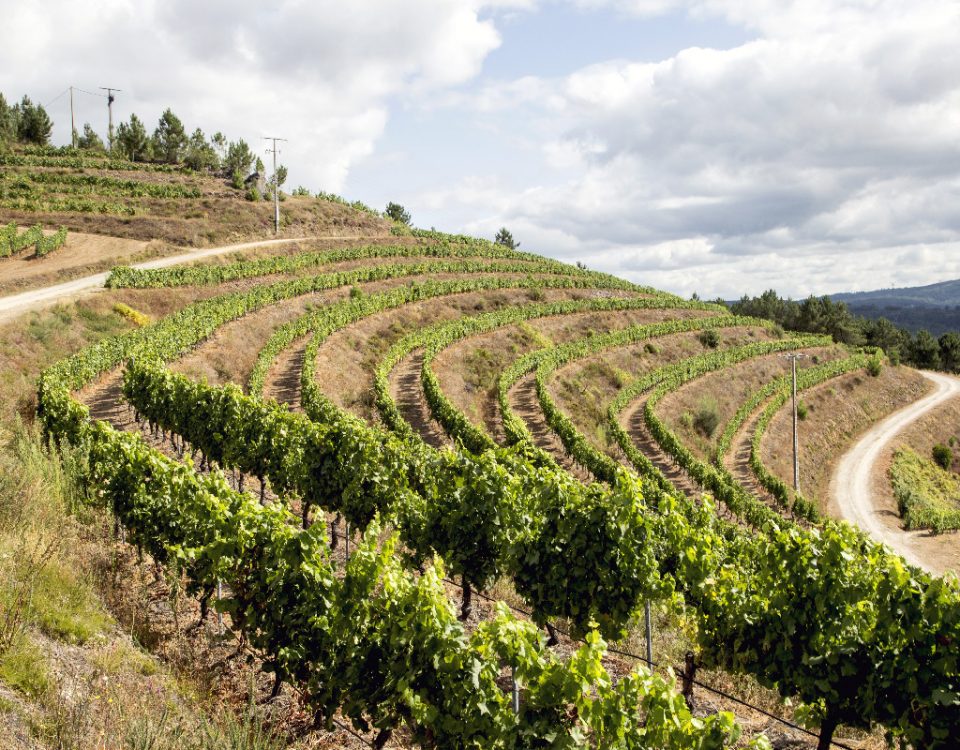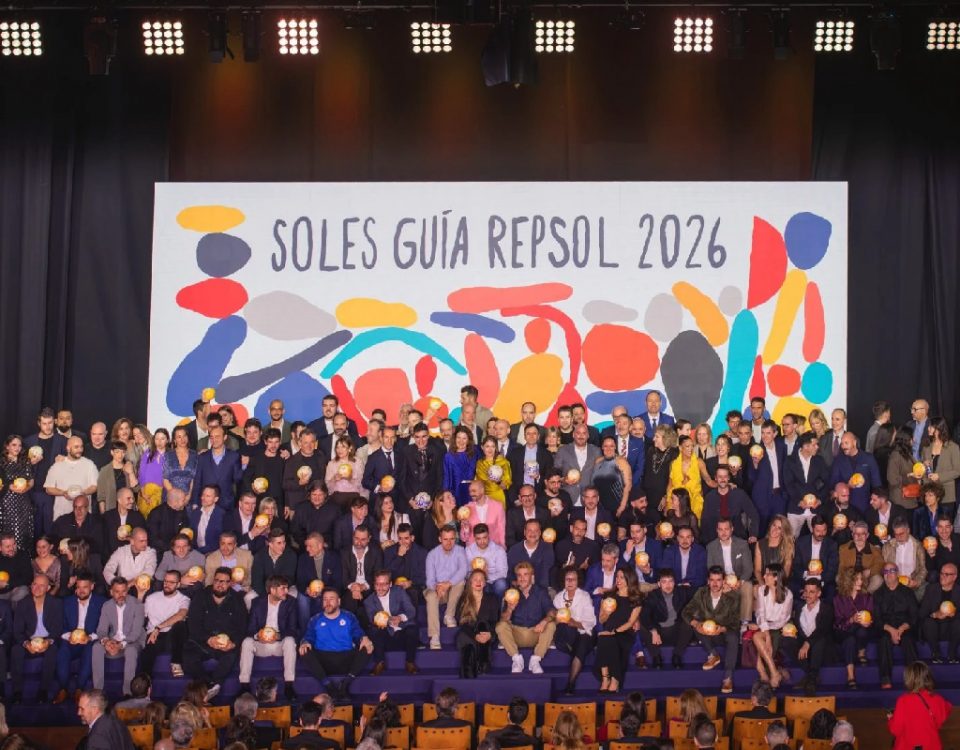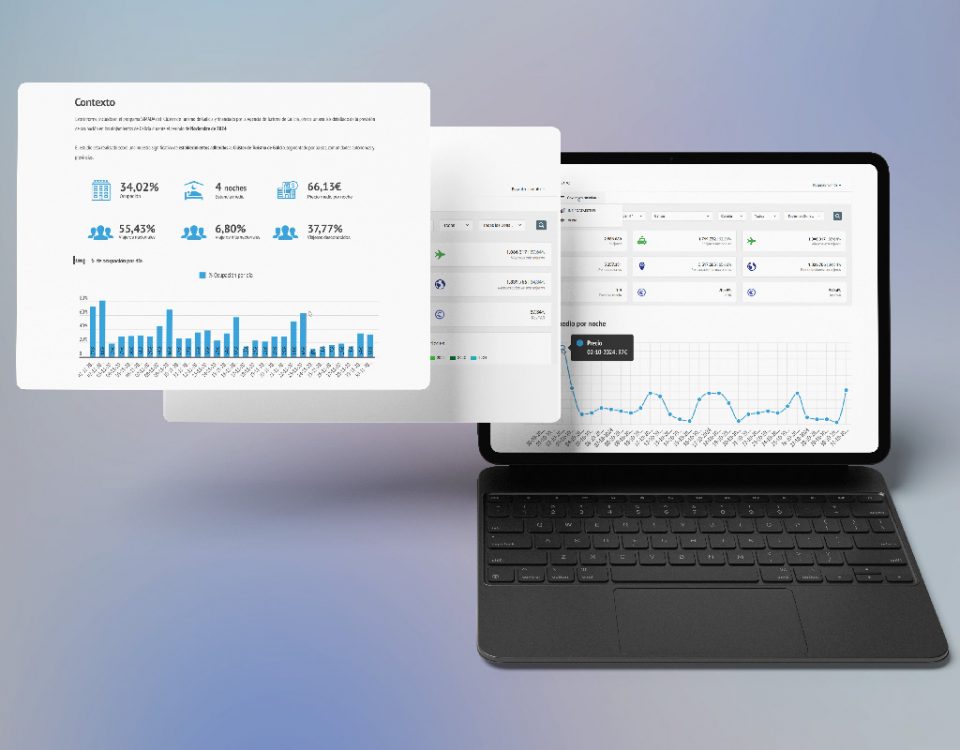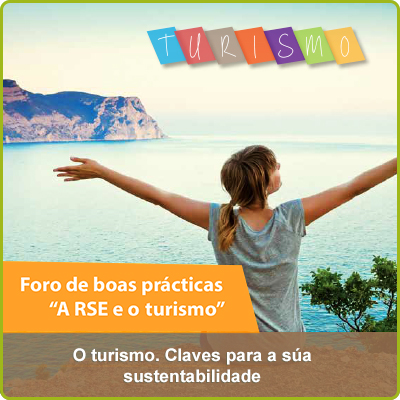- El mejor turismo de galicia
Cesáreo Pardal emphasizes the value of tourism professions at the Conecta FP Galicia Plan Sector Meeting
Cesáreo Pardal emphasizes the value of tourism professions at the Conecta FP Galicia Plan Sector Meeting
- The event brought together more than 100 representatives from the educational and business sectors to strengthen vocational training in the tourism, hospitality, and food industries.
Last week, the Compostela Integrated Vocational Training Center hosted a new Conecta FP Galicia Plan Sector Meeting, focusing on the tourism, hospitality, and food industries. It was attended by more than 100 people, including representatives from companies, management teams, and teachers from training centers.
During the event, the president of the Galician Tourism Cluster, Cesáreo Pardal, emphasized the need to enhance the prestige of tourism professions and improve society’s perception of the sector: “We want to make the role of professionals visible, reinforce their importance in the value chain, and recognize the real impact they have on the economy and regional development,” he noted.
He was joined at the opening by the Regional Minister of Education, Science, Universities, and Vocational Training, Román Rodríguez González; the Director of Tourism of Galicia, Xosé Manuel Merelles; and the General Director of Vocational Training in Galicia, Eugenia Pérez.
The meeting served to analyze how to improve the connection between vocational training and the real needs of the labor market, in a context of growing demand for qualified personnel. In total, there are 196 vocational training programs, cycles, and master’s degrees offered in 58 educational centers. Currently, more than 5,200 students are pursuing vocational training courses related to these sectors, and some cycles achieve job placement rates above 93%, including degrees with full employment, such as Viticulture, Thermalism and Wellness, and Tourist Accommodation Management.
Throughout the day, reports and round tables were held on the accreditation of skills, the role of Intensive Dual Vocational Training and collaboration between educational centers and companies. Representatives of firms such as Parador Costa da Morte, O Corte Inglés, Grupo HOTUSA, Gran Hotel Talaso Sanxenxo or Café Venecia participated, as well as heads of centers such as CIFP Compostela and CIFP Carlos Oroza.
These sectoral meetings are part of a strategy of active listening and direct collaboration with the productive sector, serving as spaces for consultation with the sector to identify real and emerging needs. Through the participation of companies, educational centers, and key stakeholders, the aim is to define an up-to-date, useful training program aligned with the skills demanded by the labor market, thus ensuring a vocational training program that is more connected to the present and future of tourism, hospitality, and the food industry in Galicia.
From the Cluster we highlight the importance of continuing to work together to develop talent, dignify the professional trajectories in the sector and consolidate Galicia as a quality destination also from its human capital.

